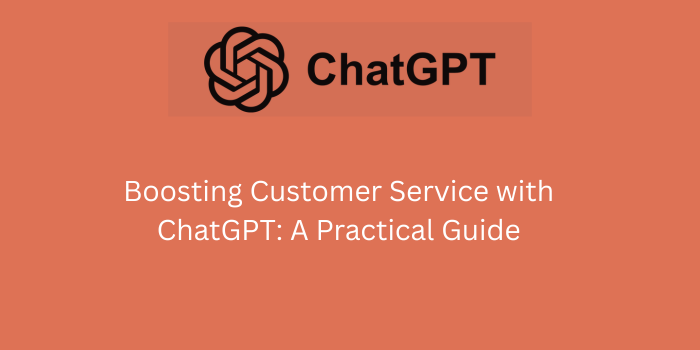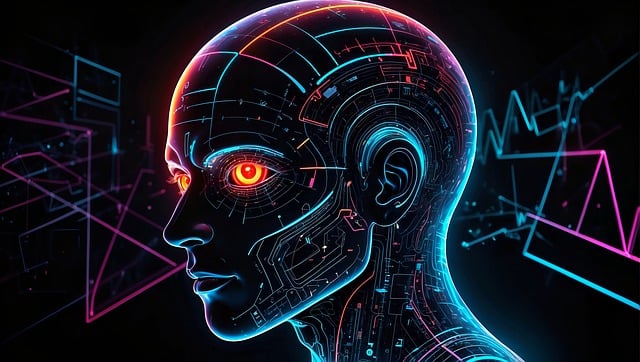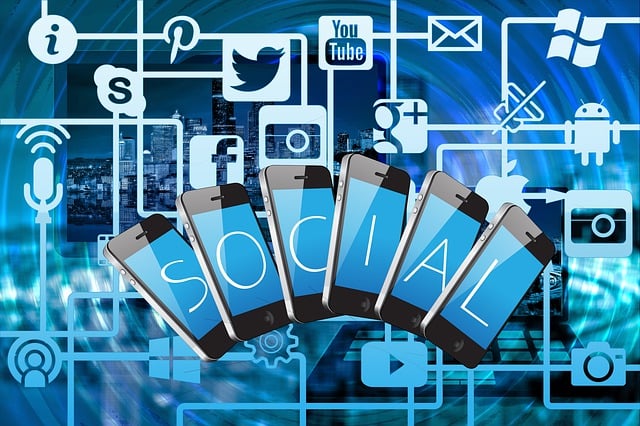In today’s fast-paced digital world, providing exceptional customer service is crucial for any business aiming to build brand loyalty and customer trust. Enter ChatGPT—OpenAI’s powerful language model that can revolutionize how businesses manage customer interactions. This guide explores how to integrate and utilize ChatGPT for customer service, turning support departments into efficient, AI-enhanced powerhouses.
Why Use ChatGPT for Customer Service?
ChatGPT offers numerous advantages for enhancing customer service operations. By leveraging artificial intelligence, businesses can deliver faster, more efficient, and consistent support while reducing the burden on human agents. The ability of ChatGPT to understand and respond to customer inquiries in real-time allows companies to scale their operations without sacrificing quality. Additionally, it can seamlessly handle repetitive tasks, allowing support teams to focus on more complex or sensitive customer issues.
Here are some key reasons why ChatGPT is an ideal solution for customer service:
- Providing 24/7 availability without the cost of night shifts or overtime.
- Offering fast, consistent responses based on a vast knowledge base.
- Reducing ticket volumes by resolving common queries instantly.
- Improving customer satisfaction through personalized, conversational support.
Real-World Use Cases of ChatGPT in Customer Support
ChatGPT is already transforming the customer service landscape across various industries. By integrating AI-driven support, companies are able to streamline their operations, enhance user experiences, and deliver faster resolutions. From e-commerce to healthcare, ChatGPT’s adaptability makes it a perfect fit for diverse use cases.
Here are some practical examples of how businesses are utilizing ChatGPT in customer support:
- Live Chat Assistance: Automate initial customer queries and escalate to human agents when needed.
- Help Desk Ticketing: Automatically triage and prioritize incoming tickets using ChatGPT’s NLP capabilities.
- FAQ Automation: Deploy ChatGPT as a virtual FAQ bot on your website or app.
- Email Response Drafting: Speed up support email replies by letting ChatGPT generate responses for review.
- Multilingual Support: Communicate with customers in multiple languages with natural fluency.
Getting Started with ChatGPT for Customer Support
Getting started with ChatGPT for your customer support department can seem daunting at first, but with the right approach, it becomes a seamless addition to your operations. By following a clear step-by-step process, you can integrate ChatGPT into your workflow, enhancing both the speed and quality of your customer interactions. Whether you’re looking to automate common questions or enhance your team’s efficiency, these steps will help you implement ChatGPT effectively.
- Define Your Use Case: Identify the customer service pain points where AI can help.
- Choose a Platform: Decide if you want to integrate ChatGPT into your website, CRM, or a chatbot platform like Intercom, Zendesk, or Freshdesk.
- Customize the Model: Use prompt engineering or fine-tuning to align ChatGPT responses with your brand tone and policies.
- Integrate via API: Connect ChatGPT using OpenAI’s API or tools like Zapier or Make.
- Test and Monitor: Launch in a test environment and evaluate accuracy, escalation logic, and customer feedback.
Best Tools and Plugins for ChatGPT in Customer Service
To fully leverage ChatGPT for customer service, businesses can integrate a variety of tools and plugins that enhance functionality, improve workflows, and provide additional features. These integrations help streamline support, automate repetitive tasks, and ensure smooth communication across platforms.
Below are some of the best tools and plugins to use with ChatGPT:
- Zapier: Automate workflows by connecting ChatGPT with apps like Gmail, Slack, and Trello.
- Intercom + GPT: Add conversational AI to your existing customer support suite.
- Custom GPTs: Create tailored bots for different service lines using OpenAI’s Custom GPT feature.
- Chatbase or Botpress: Train ChatGPT on your own documents, FAQs, or support scripts.
Best Practices for Using ChatGPT in Customer Service
While ChatGPT offers remarkable capabilities for automating customer service tasks, it’s essential to follow best practices to ensure that it complements your team and enhances the customer experience. By setting clear guidelines, customizing interactions, and maintaining data accuracy, you can ensure that ChatGPT works seamlessly within your existing support framework and meets the high standards customers expect.
- Set Clear Escalation Rules: Ensure complex issues are handed off to human agents.
- Keep It On-Brand: Customize prompts to reflect your brand’s tone and customer expectations.
- Regularly Update Training Data: Keep ChatGPT current with evolving policies, products, and services.
- Respect Privacy: Ensure that all interactions comply with GDPR, CCPA, or other applicable data regulations.
Challenges and Limitations
- It may produce incorrect or outdated answers if not properly guided.
- It lacks real-time database or CRM access unless integrated manually.
- Complex emotional or sensitive issues still require human intervention.
While ChatGPT is incredibly powerful, it is important to recognize that it is not a perfect solution for all customer service needs. Its performance heavily depends on the data it has been trained on, and it may sometimes fail to understand nuances or context in more complex or emotional customer interactions.
Furthermore, integrating ChatGPT into existing systems requires careful planning, as it does not automatically sync with CRM systems or retrieve real-time data without additional integrations. As such, businesses should ensure that there are clear escalation paths for issues beyond ChatGPT’s capabilities to maintain high-quality service.
- 44+ Best ChatGPT Prompts for Entrepreneurs to Automate, Grow, and Succeed
- Using ChatGPT to Identify and Understand Your Target Market
Case Studies: Businesses Using
Case Studies: Businesses Using ChatGPT Successfully
- E-commerce Brands: Reduced return-related tickets by 30% using automated FAQs.
- SaaS Platforms: Handled Tier 1 support with AI, freeing agents for escalated issues.
- Healthcare Providers: Used ChatGPT for appointment scheduling and answering common patient questions.
One notable example is a global online retailer that implemented ChatGPT to assist with managing product inquiries, order status updates, and troubleshooting common issues like shipping delays or returns. As a result, the company reduced response times by over 50% and improved customer satisfaction scores.
By leveraging ChatGPT’s ability to provide instant, accurate information, businesses are seeing both increased efficiency and cost savings. This case demonstrates how AI can handle routine tasks, leaving customer service representatives to focus on more complex customer needs, ultimately driving higher operational productivity.
Future of AI in Customer Service
- Voice-Enabled AI Assistants: ChatGPT-powered phone support is just around the corner.
- Proactive Support: Predicting customer needs based on past behavior and offering help before it’s requested.
- Sentiment Analysis: Gauging customer mood in real-time and adjusting tone accordingly.
The future of AI in customer service holds immense potential. As AI technology evolves, customer service solutions like ChatGPT will become more intelligent, intuitive, and responsive. We can expect AI to not only support customers more efficiently but also understand emotional cues, offering a more human-like interaction.
Integration with new platforms, such as augmented reality (AR) and virtual reality (VR), may soon bring AI-driven service to new dimensions. This will enable businesses to deliver highly personalized experiences while reducing customer effort and operational costs.
Conclusion
Implementing ChatGPT in your customer service strategy is no longer a futuristic concept—it’s a competitive advantage. With thoughtful integration, consistent monitoring, and strategic prompt engineering, ChatGPT can deliver high-quality support that delights customers and reduces strain on your team. Start small, scale smart, and watch as AI transforms your customer experience.






